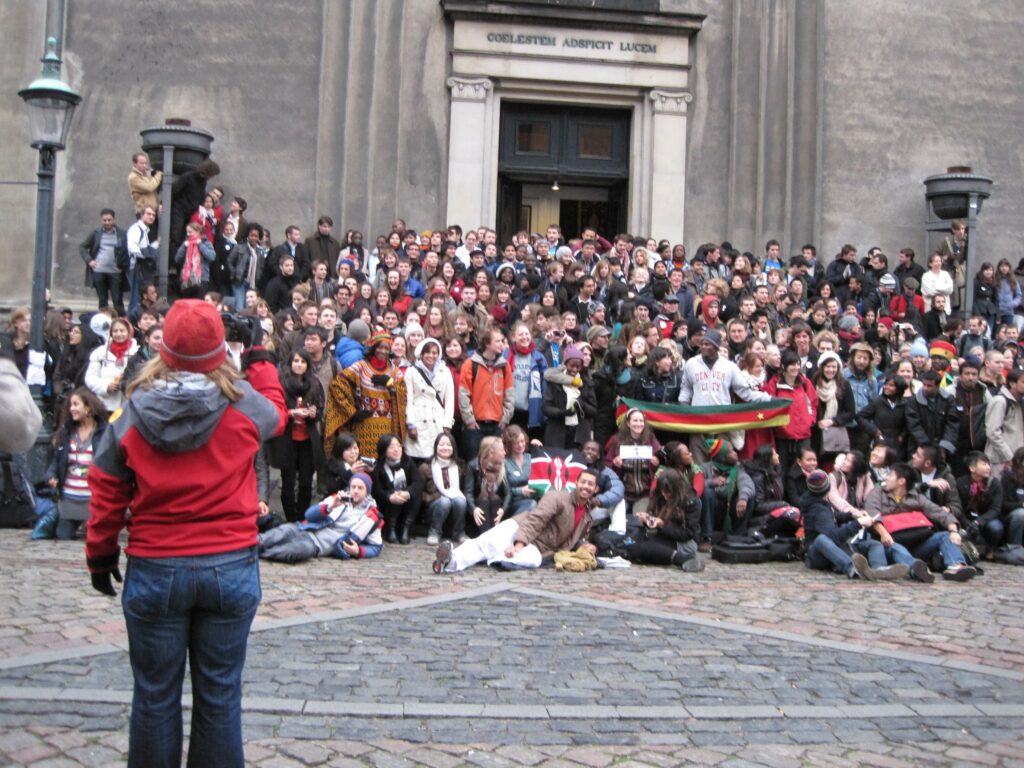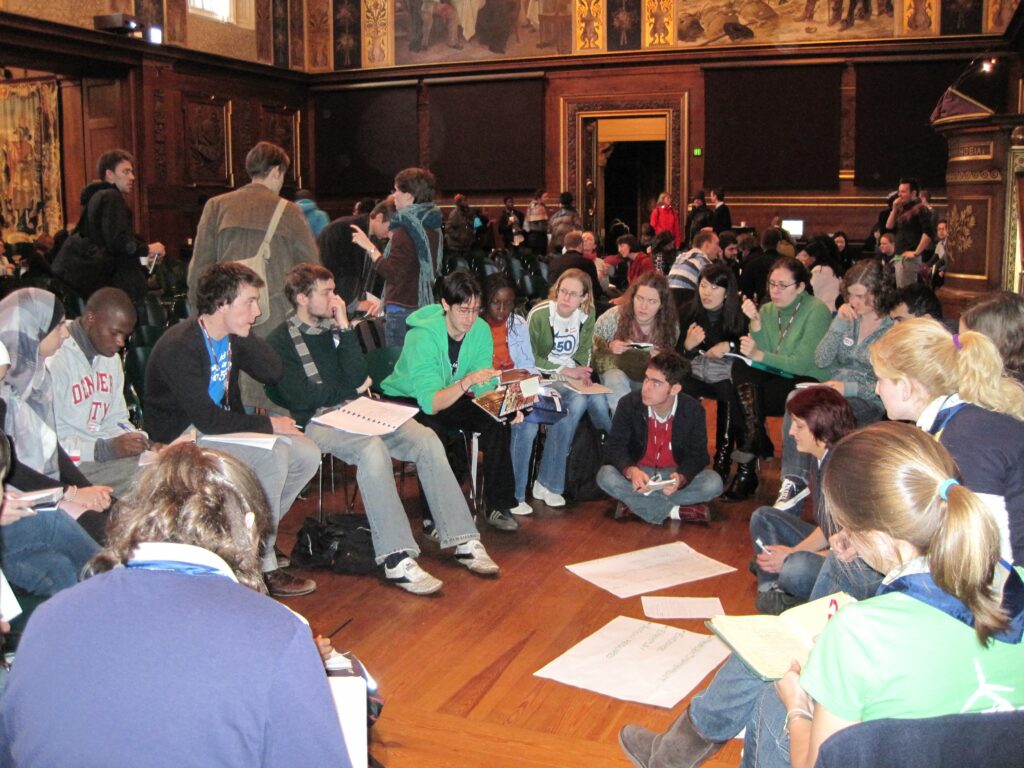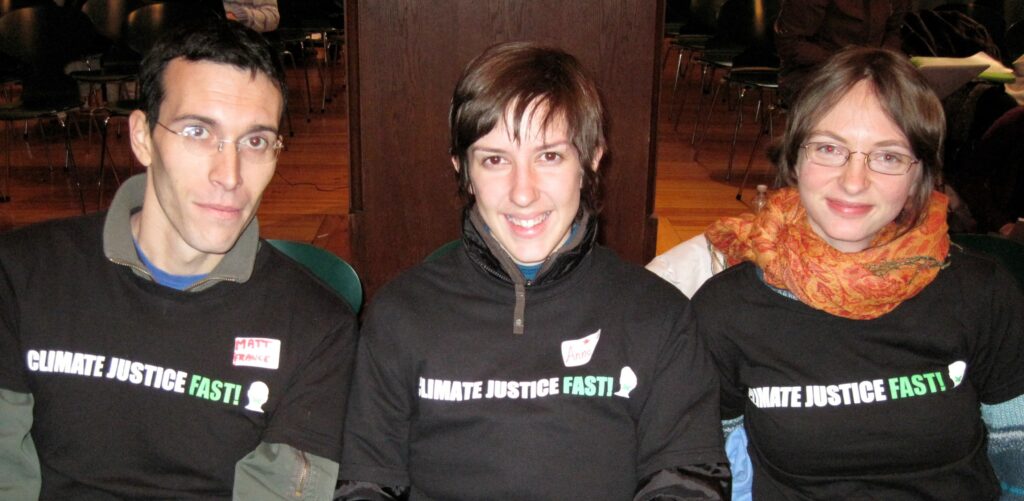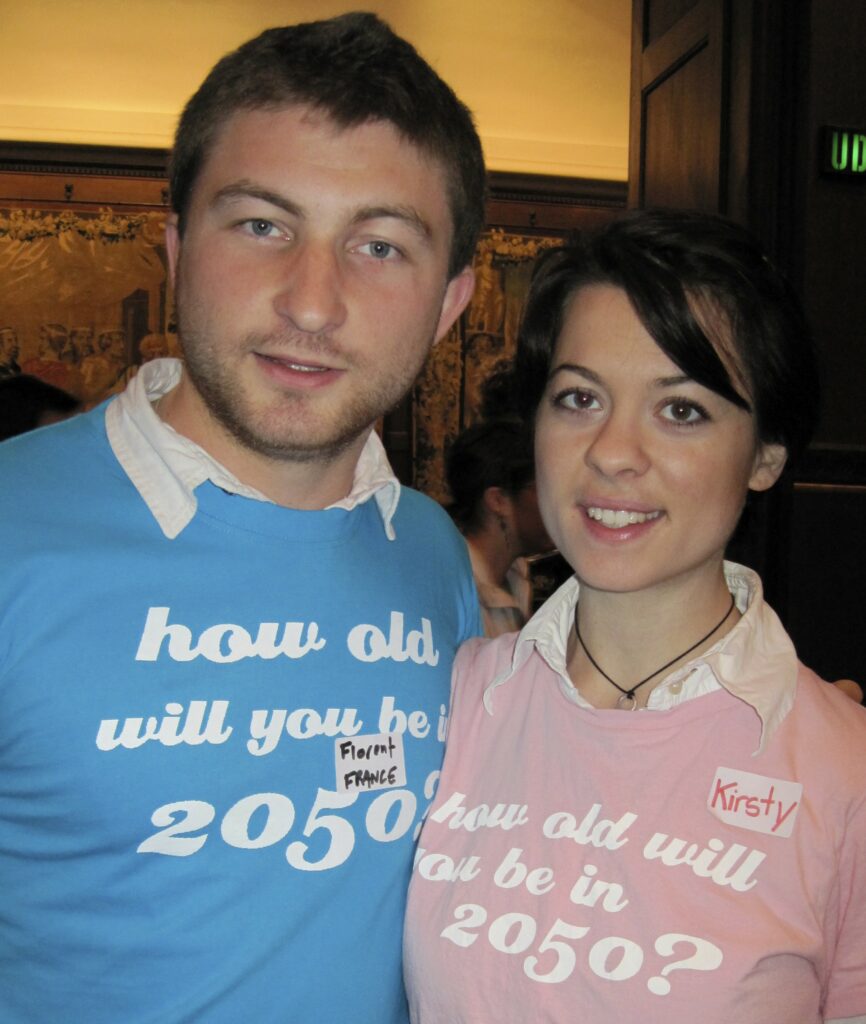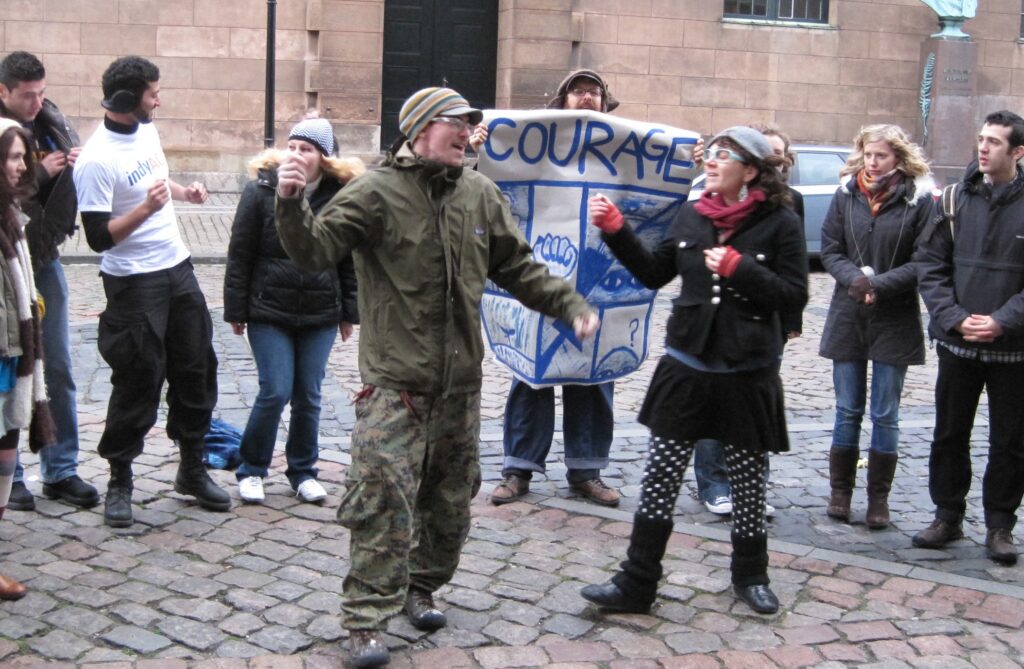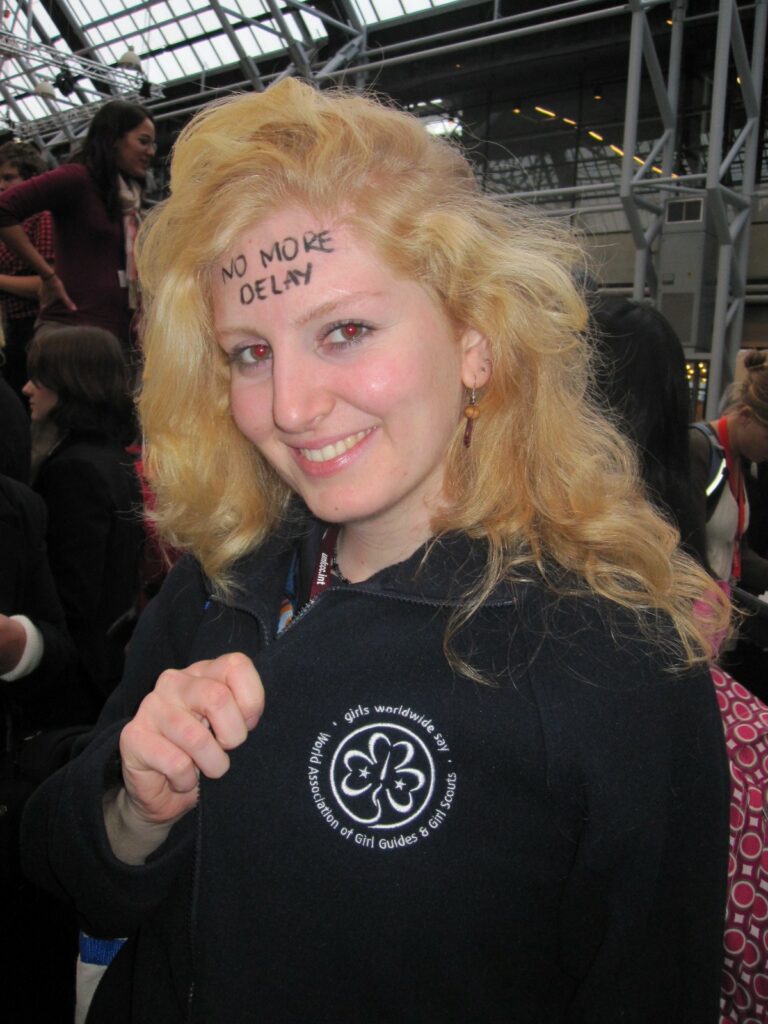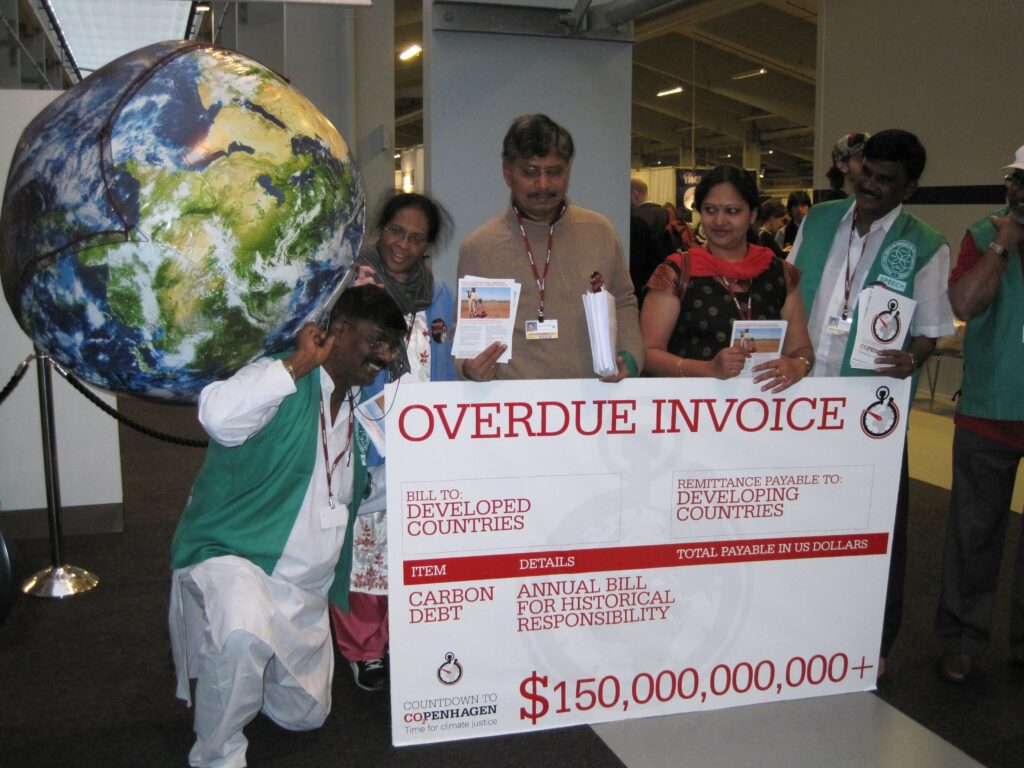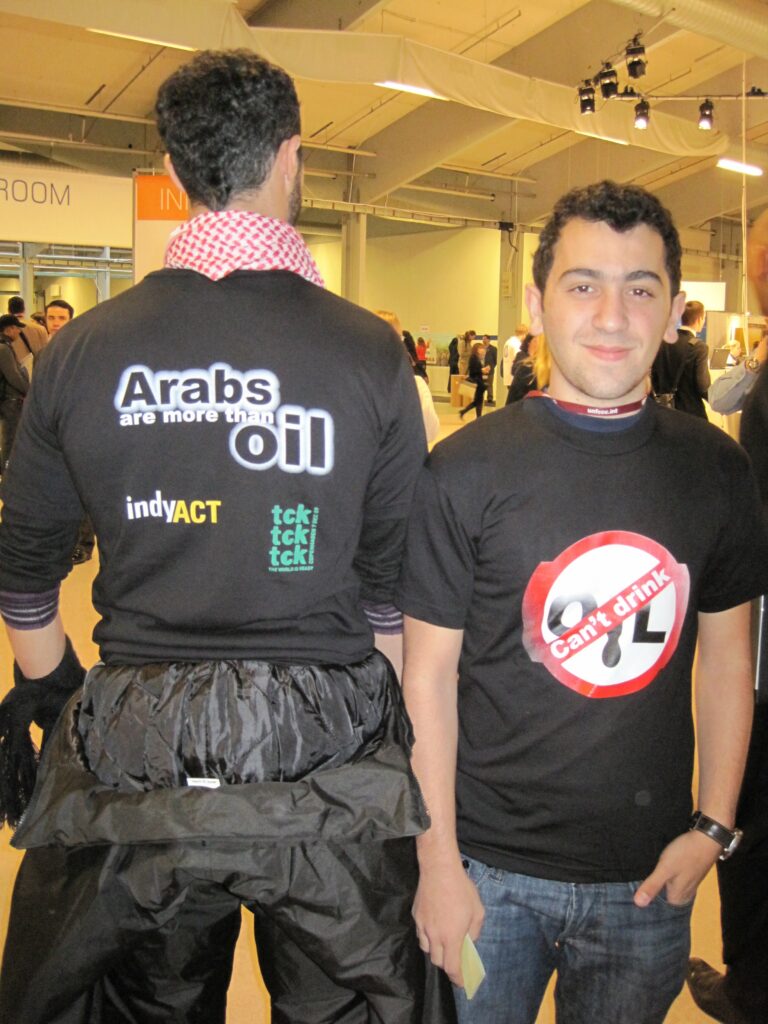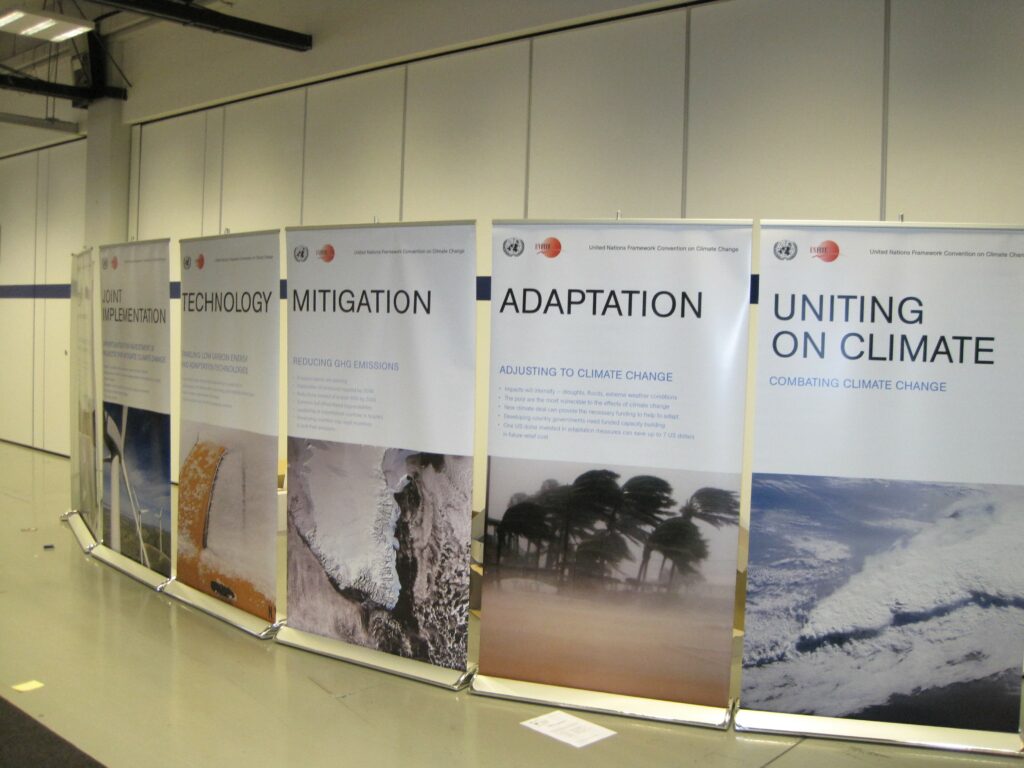Photo Essay: 2009 UN Climate Conference through the Lens of Mediators Beyond Borders
TRANSCEND MEMBERS, 23 Dec 2019
Diane Perlman | Medium – TRANSCEND Media Service
15 Dec 2019 – The 25th meeting of the Conference of Parties of the United Nations Framework Convention on Climate Change (UNFCC), COP 25, has just ended in Madrid.
Ten years ago, I had the privilege of attending COP 15 in Copenhagen with Mediators Beyond Borders. 45,000 people registered for the official UN meeting at the Bella Center. Delegates, negotiators, NGOs, press, and over 1000 youth participated in more than 2000 events over two weeks. Downtown, 10,000 people per day attended the Klima Forum, People’s Climate Summit. The city buzzed with demonstrations, rallies, exhibits, and concerts. On December 12th, 100,000 people marched in a rally to the Bella Center. (see photos below).
In 2008, Tina Monberg, a Danish member of Mediators Beyond Borders (MBB) approached MBB president Kenneth Cloke to explore the role of mediators in addressing climate conflicts. MBB became the only dispute resolution organization approved for Non-Governmental Observer status at COP 15. MBB has participated in all following COPs.
In 2009, 25 MBB members met daily to strategize and debrief. We held a seminar with 60 international mediators from 20 countries, and studied a range of emerging climate conflicts. We evolved as a team and generated significant interest in conflict mediation. We made over a thousand contacts, including: Archbishop Desmond Tutu; Ivo DeBoer, chief COP negotiator; Noble Peace Prize Winner Wangari Mathai and others.
Our goal was to learn about environmental conflicts, raise awareness, look for avenues for intervention, make connections, and advocate for the inclusion of language recommending mediation first to facilitate problem-solving and conflict transformation.
Various levels and types of conflicts are associated with different causes, consequences, and solutions. Conflict-generating situations fester between developed and developing countries, US Democrats and Republicans, and central governments and local authorities. Corporations, oil companies, factory farms, and the coal industry are in conflict with communities, small farmers, and public health concerns. Clashes between neighboring villages exist over farming practices, contamination, water use, scarce resources, and the misfortune of being downstream or downwind. Attachments to cheap energy, profits and our way of life block political will needed to transform systems and infrastructure.
We can categorize primary conflicts, which if not solved will increase climate breakdown and generate secondary conflicts such as hundreds of millions of climate refugees and increases in violence on all levels, including war. Success in ameliorating primary conflicts will prevent or reduce secondary conflicts.
MBB president Ken Cloke explained that such conflicts “cannot be solved locally, by a consortium of nation states, by any international organization, including the UN, or through force or litigation. … Current mechanisms are incapable of solving these conflicts expediently or effectively, and failure to solve them will be catastrophic. The answer lies in communication and international collaboration. All sources of conflict need to be addressed, as well as resistance to systemic change at all levels. For this to happen, we need to increase our skills in cross-cultural communications, prejudice reduction and bias awareness, informal problem solving, group facilitation, public dialogue, collaborative negotiation, mediation, and conflict resolution systems design.”
In the absence of effective strategies to address the interlocking layers of conflict, it will escalate and proliferate. Achim Steiner, Executive Director, UN Environment Programme noted, “This whole meeting is about facilitating away from conflict. Climate change is exacerbating and enhancing flash points of conflict.”
Mediators, negotiators, and conflict analysts have profound and specific role and responsibility to intervene to improve communications, reduce tensions, explore creative strategies to solve problems, and transfrom conflicts. The stakes are as high as they can be. Gratitude to Mediators Beyond Borders for opening this door.
PHOTOS FROM COP15, KLIMA FORUM, MARCH & MBB SEMINAR
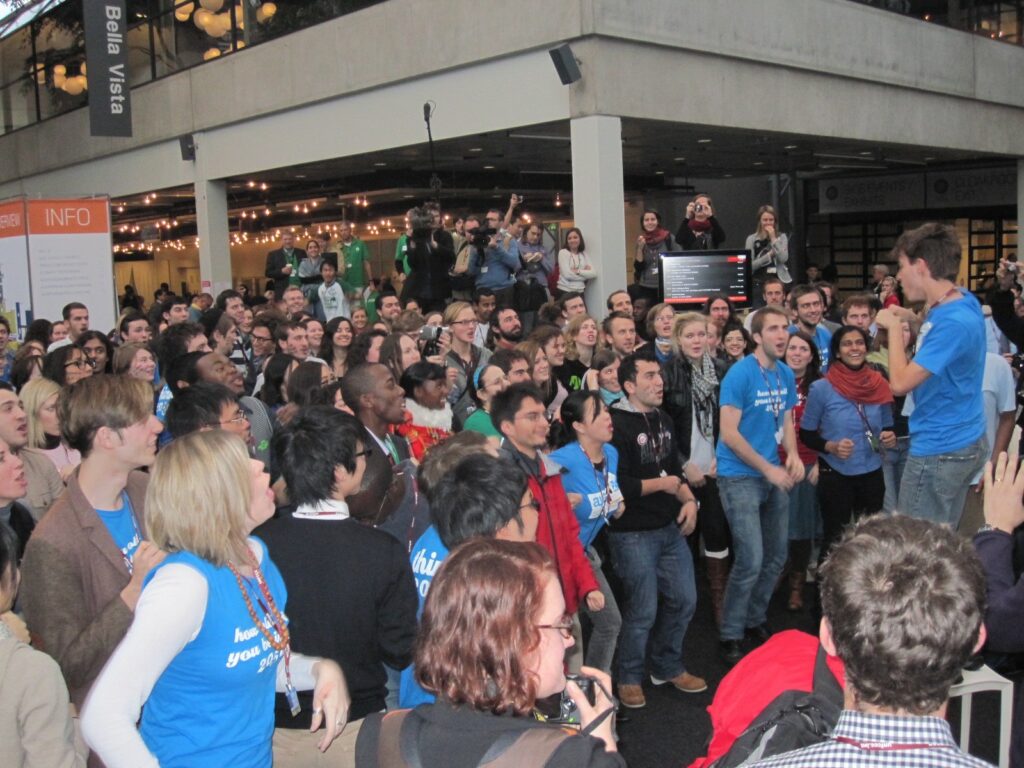
Inside the Bella Center youth lunchtime demonstration to appeal to delegates, chanting “Ooooh, it’s hot in here, too much carbon in the atmosphere. Take Action take action and get some satisfaction! No More Delay! No More Delay!
TO CONTINUE VIEWING Go to Original – medium.com
_____________________________________________
 Diane Perlman, PhD is a clinical and political psychologist, devoted to applying knowledge from psychology, conflict studies and social sciences to designing strategies and policies to reverse nuclear proliferation, to drastically reduce terrorism, reduce enmity, and to raise consciousness about nonviolent strategies for tension reduction and conflict transformation. She is a visiting scholar at the School for Conflict Analysis and Resolution at George Mason University, is active in Psychologists for Social Responsibility, the TRANSCEND Network for Peace Development Environment, and on the Global Council of Abolition 2000. Some of her writings can be found on her websites, www.consciouspolitics.org and www.SanityandSurvival.com. Email: dianeperlman@gmail.com.
Diane Perlman, PhD is a clinical and political psychologist, devoted to applying knowledge from psychology, conflict studies and social sciences to designing strategies and policies to reverse nuclear proliferation, to drastically reduce terrorism, reduce enmity, and to raise consciousness about nonviolent strategies for tension reduction and conflict transformation. She is a visiting scholar at the School for Conflict Analysis and Resolution at George Mason University, is active in Psychologists for Social Responsibility, the TRANSCEND Network for Peace Development Environment, and on the Global Council of Abolition 2000. Some of her writings can be found on her websites, www.consciouspolitics.org and www.SanityandSurvival.com. Email: dianeperlman@gmail.com.
Tags: COP25, Climate Change, Environment, Global warming, Paris Climate Agreement, United Nations
DISCLAIMER: The statements, views and opinions expressed in pieces republished here are solely those of the authors and do not necessarily represent those of TMS. In accordance with title 17 U.S.C. section 107, this material is distributed without profit to those who have expressed a prior interest in receiving the included information for research and educational purposes. TMS has no affiliation whatsoever with the originator of this article nor is TMS endorsed or sponsored by the originator. “GO TO ORIGINAL” links are provided as a convenience to our readers and allow for verification of authenticity. However, as originating pages are often updated by their originating host sites, the versions posted may not match the versions our readers view when clicking the “GO TO ORIGINAL” links. This site contains copyrighted material the use of which has not always been specifically authorized by the copyright owner. We are making such material available in our efforts to advance understanding of environmental, political, human rights, economic, democracy, scientific, and social justice issues, etc. We believe this constitutes a ‘fair use’ of any such copyrighted material as provided for in section 107 of the US Copyright Law. In accordance with Title 17 U.S.C. Section 107, the material on this site is distributed without profit to those who have expressed a prior interest in receiving the included information for research and educational purposes. For more information go to: http://www.law.cornell.edu/uscode/17/107.shtml. If you wish to use copyrighted material from this site for purposes of your own that go beyond ‘fair use’, you must obtain permission from the copyright owner.
